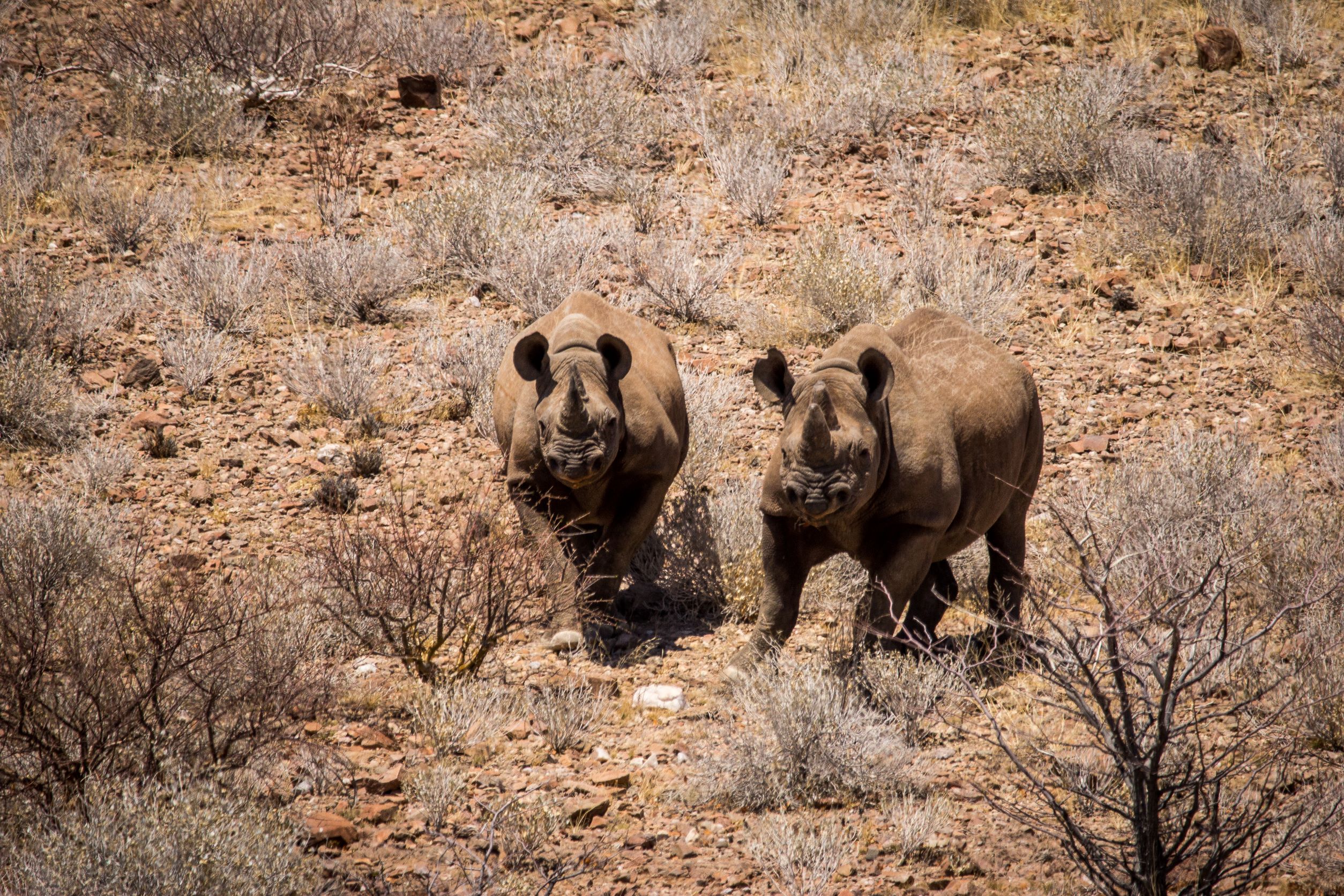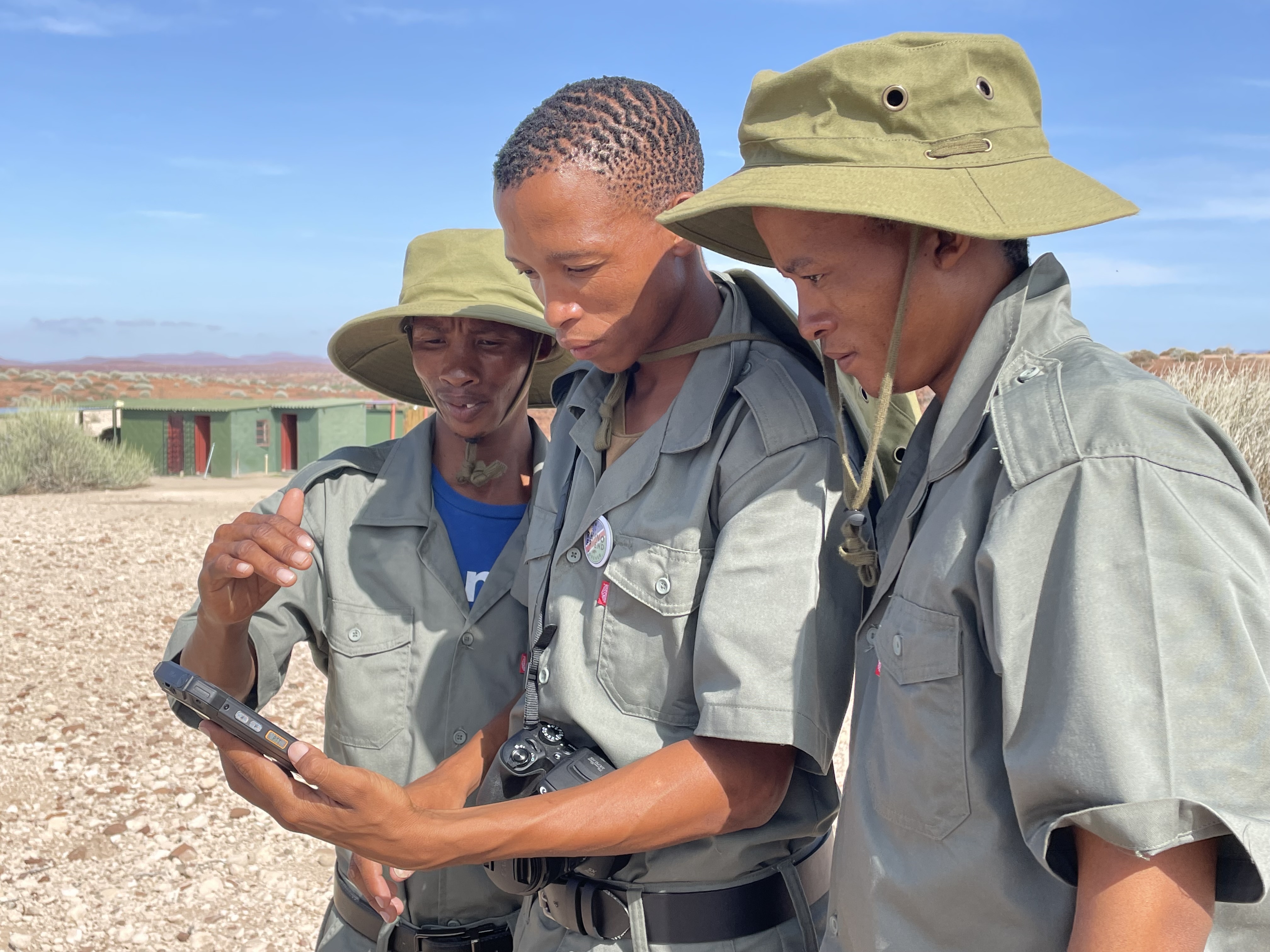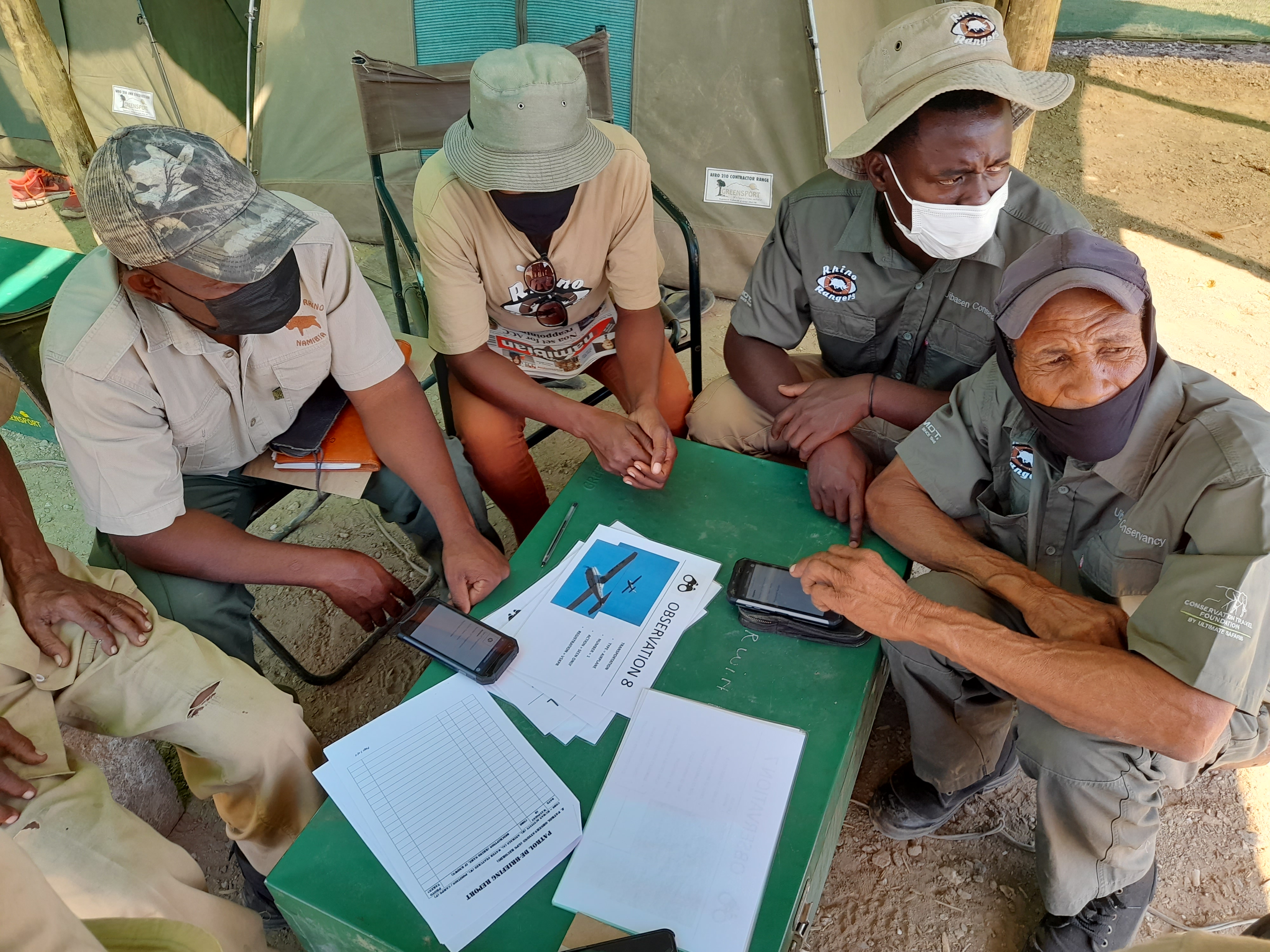Our Stories
Gold Bars Fund Sustainable Conservation of Rhinos

September 8, 2022
Extinction carries a domino effect: rural communities lose part of their heritage, jobs in tracking and tourism disappear, and their means of making an income are diminished.
In early 2020, B2Gold launched an innovative campaign in North America to help support the conservation and protection of the critically endangered black rhinos, and the community-based rhino rangers and trackers who protect them, in Namibia, Southern Africa.
Through B2Gold’s ground-breaking donation of 1,000 ounces of gold (valued at approximately US$1.9 million) from its Otjikoto Mine in northcentral Namibia, B2Gold produced 1,000 limited edition Namibian Rhino Gold Bars in various sizes. Each one-ounce bar was available for purchase at the spot price of gold plus a 15% conservation premium.
Supporting community-driven efforts
The Namibian Rhino Gold Bar initiative represents the first time that gold, a natural resource from the ground, is being used to provide sustainable financing to community-driven efforts to protect an iconic global treasure, the critically endangered black rhino.

Rangers tracking the local black rhino population on SMART devices.
The campaign was announced on World Ranger Day, which recognizes and celebrates rangers who are at the forefront of conservation efforts around the world by protecting natural and cultural resources. It also commemorates rangers that are injured or killed in the line of duty.
Due to poaching, driven by the illegal rhino horn trade, over 1,000 wild rhinos are killed for their horns in Africa each year. The northwest of Namibia is home to the last and largest population of free-roaming black rhinos in the world, but with approximately 6,000 black rhinos left in the wild, the need for rhino conservation and protection has never been so critical. At the current rate, it is predicted that black rhinos will be extinct within a decade.
One of the key challenges for successful conservation and protection of the black rhinos is that they live in a rural area that covers 25,000 square kilometres with no national park status, few roads and little control as to who can access the area. The monitoring and safety of this population of black rhinos is attributed to the commitment of organizations – such as Save the Rhino Trust Namibia (SRT), Integrated Rural Development and Nature Conservation (IRDNC) and Rhino Rangers – and local communities that continue to dedicate their lives to protecting the rhinos. In addition to the vast size and remoteness of the rhino range area, rhino rangers and trackers are faced with several other challenges in the field, including tackling dangerous terrain, dealing with a harsh climate and being continually threatened by poachers.
Pandemic impacts

Rangers from one of the conservancies supported by Namibian Nature meet to discuss rhino sightings
More recently, the biggest challenge to the success of black rhino conservation and protection is the impact of the COVID-19 pandemic. Organizations such as SRT and IRDNC, which provide critical field-based support to rhino rangers and trackers, have had their budgets slashed as international donors have had to pass along cuts to their own budgets. The pandemic has also generated significant job losses in urban areas and created an influx of people migrating back to their extended families in rural areas, putting increased pressure on natural resources and ultimately resulting in an increase in poaching. Furthermore, several areas within the rhino range have been left exposed by the lack of tourists because of the pandemic, which now require extra patrolling efforts by SRT, IRDNC and Rhino Rangers. In turn, this leads to a need for increased resources at a time when conservation funding is being cut. Rhino tracking has been central to tourism development in the region and has provided local jobs and a source of income for local communities. However, the knock-on effect of the pandemic in terms of job security and the protection of the black rhinos is potentially devastating for a region that has worked so hard to develop a rhino-based economy.
Redefining conservation financing
Clive Johnson, B2Gold’s President and CEO believes that the Namibian Rhino Gold Bar campaign is a striking example of the company’s commitment to giving back to the Earth. “In addition to minimizing our impact on the land in countries where we operate, we also go beyond what is required by investing in projects that have nothing to do with mining and everything to do with the protection of the planet and the quality of life for future generations,” Clive said. “Poaching and the illegal trafficking of animals and their parts is a scourge that takes place around the world and must be stopped. In Namibia, where we work closely with our employees, local suppliers, business partners, the government and non-governmental organizations in so many ways, our collaborative vision for the Rhino Gold Bar was to put a new and innovative funding mechanism for conservation in place that we could all be proud of.”
Within months of the campaign launch, the entire Namibian Rhino Gold Bar inventory was sold out. The funds have been invested and are managed by an advisory committee which includes representatives from B2Gold, SRT, IRDNC, the Namibia Chamber of Environment, and the Namibia Ministry of Environment, Forestry and Tourism. The 15% conservation premium has been a way to extend the positive impact of each gold bar sold in support of rangers, trackers, and black rhino conservation and protection. It will be used to fund the future production of more gold bars, or gold medallions, the second limited edition of which will be distinctly different from the first mintage, ensuring that this initiative remains self-sustaining.
A total of US$256,861 was disbursed from the fund in 2021 and distributed to Save the Rhino Trust (US$110,698), Friends of Namibia Conservation Trust (US$ 22,096), Ultimate Safaris (US$18, 583), Namibia Nature Foundation (US$40, 621) and IRDNC & Conservancies (US$64,863). Further disbursements will be made in 2022.
Through the Namibian Rhino Gold Bar initiative, funded conservancies are able to conduct regular rhino monitoring patrols and as a result there were no poaching activities recorded by the supported conservancies. There has also been a significant increase in the patrol effort (increase in foot kilometres and increase in individual rhino sightings) in 2020, 2021 and 2022 compared to the previous years.
One of the funding recipients, Namibia Nature Foundation, supported the rhino rangers through their respective conservancies (Tsiseb, #Khoadi //Haos, Uibasen/Twyfelfonetin and Sorris Sorris) by paying for sighting bonuses, and providing daily allowances and fuel.
Another recipient, Ultimate Safaris, has established two joint ventures in Northwest Namibia with the goal of supporting conservancies and the conservation of their natural habitat. Through these operations they have over time been able to fully support the rhino rangers from Huab and Doro Nawas conservancies. The onset of the COVID-19 pandemic meant that the usual tourism funding for this support disappeared, but they were able to receive funding through the Namibian Rhino Gold Bar initiative, which allowed them to continue the logistical support of the rangers and ensure the monitoring of the rhino in these areas continued. With this support the teams remained out in the field throughout the pandemic and ensured there were no incidents of poaching.
Clive Johnson reflects on the campaign’s mission and progress to date. “Every gold bar purchased has helped to combat poaching – by supporting rhino rangers and trackers, which in turn, supports their families and empowers communities to help save a species on the verge of extinction. This is an example of using one precious resource, gold mined in Namibia, to protect another – the world's critically endangered black rhino population – now and for generations to come.”
For more information, visit: https://b2gold.com/responsible-mining/rhino/initiative/


